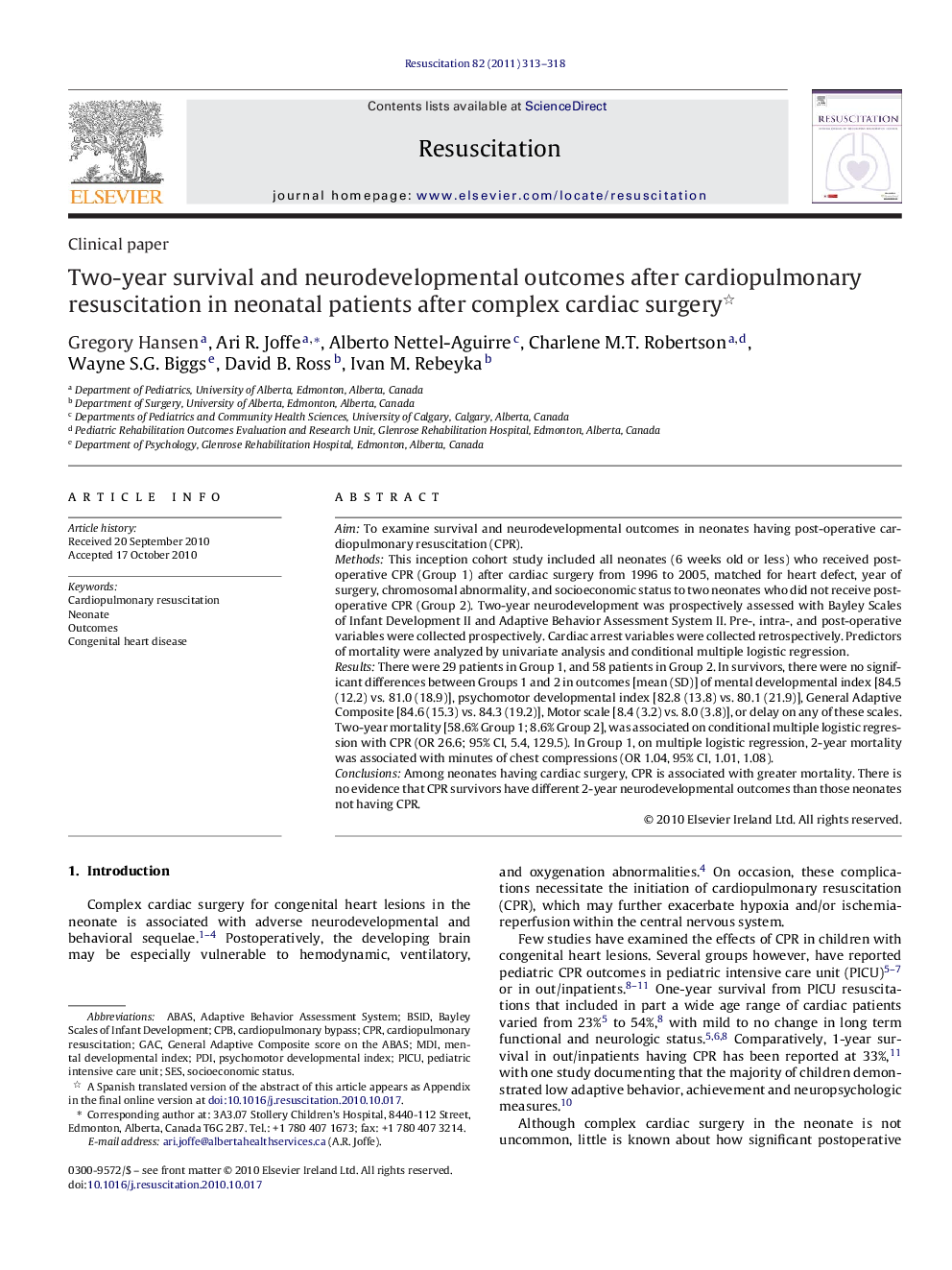| Article ID | Journal | Published Year | Pages | File Type |
|---|---|---|---|---|
| 5999388 | Resuscitation | 2011 | 6 Pages |
AimTo examine survival and neurodevelopmental outcomes in neonates having post-operative cardiopulmonary resuscitation (CPR).MethodsThis inception cohort study included all neonates (6 weeks old or less) who received postoperative CPR (Group 1) after cardiac surgery from 1996 to 2005, matched for heart defect, year of surgery, chromosomal abnormality, and socioeconomic status to two neonates who did not receive postoperative CPR (Group 2). Two-year neurodevelopment was prospectively assessed with Bayley Scales of Infant Development II and Adaptive Behavior Assessment System II. Pre-, intra-, and post-operative variables were collected prospectively. Cardiac arrest variables were collected retrospectively. Predictors of mortality were analyzed by univariate analysis and conditional multiple logistic regression.ResultsThere were 29 patients in Group 1, and 58 patients in Group 2. In survivors, there were no significant differences between Groups 1 and 2 in outcomes [mean (SD)] of mental developmental index [84.5 (12.2) vs. 81.0 (18.9)], psychomotor developmental index [82.8 (13.8) vs. 80.1 (21.9)], General Adaptive Composite [84.6 (15.3) vs. 84.3 (19.2)], Motor scale [8.4 (3.2) vs. 8.0 (3.8)], or delay on any of these scales. Two-year mortality [58.6% Group 1; 8.6% Group 2], was associated on conditional multiple logistic regression with CPR (OR 26.6; 95% CI, 5.4, 129.5). In Group 1, on multiple logistic regression, 2-year mortality was associated with minutes of chest compressions (OR 1.04, 95% CI, 1.01, 1.08).ConclusionsAmong neonates having cardiac surgery, CPR is associated with greater mortality. There is no evidence that CPR survivors have different 2-year neurodevelopmental outcomes than those neonates not having CPR.
